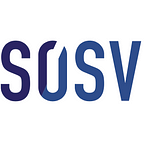“Work is about a search for daily meaning as well as daily bread, for recognition as well as cash, for astonishment rather than torpor; in short, for a sort of life rather than a Monday through Friday sort of dying.”
― Studs Terkel
As most of my friends and colleagues know, I am addicted to podcasts. A recent Shankar Vedantam Hidden Brain episode on job crafting described an approach to work that gets us closer to the astonishment that Terkel references above. Job crafting is a model of work orientation and organizational behavior developed and championed by Dr. Amy Wrzesniewski at Yale University’s School of Management. Job crafters take an active orientation to their job that involves recognizing, analyzing, then modifying the boundaries of a job to best fit their individual motives, passions, and strengths. Effective job crafters look at three areas to alter these key boundaries:
Tasks
Every job has a series of tasks, some defined by the position or function of the job. But, meaningful fulfilment comes from redefining your existing tasks to reflect what you see as being the real impact of what you do at work. The breadth and depth of any job crafters’ tasks is constantly evolving with individuals engaged and motivated….basically, it’s the “I’m here to help” philosophy. By improving the way that things are done, using skills we already have; or using your knowledge to change working methods, we can all alter what we do day-to-day to generate better results.
Relationships
We can change the nature or extent of our interactions with other people, redefining the relational boundaries that define the interpersonal interactions involved in performing our job. With a diffused organization spanning continents and time-zones, creating and sustaining relationships at SOSV is not the easiest, but those relationships are key building blocks in a job crafter’s tool kit.
Cognitive
Referred to as “cognitive crafting,’’ this is how we perceive and interpret our tasks, relationships, or job as a whole in ways that alter (and elevate!) the significance of our work. Am I just shuffling schedules or am I helping deliver on the “once impossible, now inevitable” SOSV message? Elevating the cognitive view of one’s role enables a shift in the ways we approach the ownership of our tasks and relationships, enabling us to better recognize holes and proactively work to fix them.
Job crafting leads to positive intrinsic outcomes for both the individual employee and the employer. A growing body of research shows that effective job crafting evidences outcomes such as greater personal meaning and enhanced self-image, and also improvements in overall employee well-being, decreased burn-out, and increased engagement and job performance, resulting in less absenteeism and increased organizational effectiveness.
Research has identified five dominant themes that define the various proactive behaviors of experienced job crafters.
- “Find the holes and fill ‘em” — Streamlining processes for the organization
This is an obvious one….and one in which everyone at SOSV seems engaged. That doesn’t mean that we can’t continue to iterate and evolve. Process improvement is a constant goal, but it is not steady up-and-to-the-right progress. But setbacks caused by new processes, new tools, or new projects should be approached as temporary bumps that we need to figure how to get over or around in order keep on moving ahead.
- “It’s just meaningful for me to try to make things better” — Desire to create change and make an impact
Awareness that the contributions you make are valuable and impactful, especially on a company-wide level, imbues our jobs with purpose and fulfillment. While some of this feeling can be internally generated, we all have an important role in providing external validation when we see those around us taking actions that have an impact in ways both large and small. This is something I want to do more of in 2017. I am constantly amazed at the breadth and depth of what those around me are accomplishing every day….and recognize that I need to be more mindful in expressing recognition.
- “Conversation and intention” — Use open, transparent communication in relationships
I believe that our current emphasis on PMBOs (Personal Management By Objectives), top-down and bottom-up, will provide much clarity in terms of our communications. One key challenge for SOSV will be to apply our internal understanding of our corporate and individual PMBO’s to our external communications and relationship.
- “Know thyself” — Gain self-awareness and an understanding of your preferences
A huge part of a job crafter’s motivations revolve around altering your job in ways that maximize personal meaning and fulfillment. No one at SOSV is in it for the money, so it is critical that we each do what it takes to become aware of the tasks, environments, and situations that bring us each meaning and fulfillment. How to do that, however, is a personal journey and one that I personally wrestle with (feedback welcome here!).
- “Ask for forgiveness not permission” — Initiative and assertiveness
Of all themes identified within the data, possessing initiative and assertiveness was by far the most widely discussed. Taking the initiative and asserting yourself is the only way to leverage what you want out of your job. Research has shown that those who are proactive, actively altering their environments, are more likely to be effective in their jobs. This means taking the initiative to improve your current circumstances, identifying opportunities for change, taking action and, importantly, persevering and/or pivoting until those actions bring about meaningful change.
The bottom line? Let job crafting help shape your job to you, rather than shaping yourself to your job.
Written by Audrey Chen .Originally published at sosv.com on February 27, 2017.
